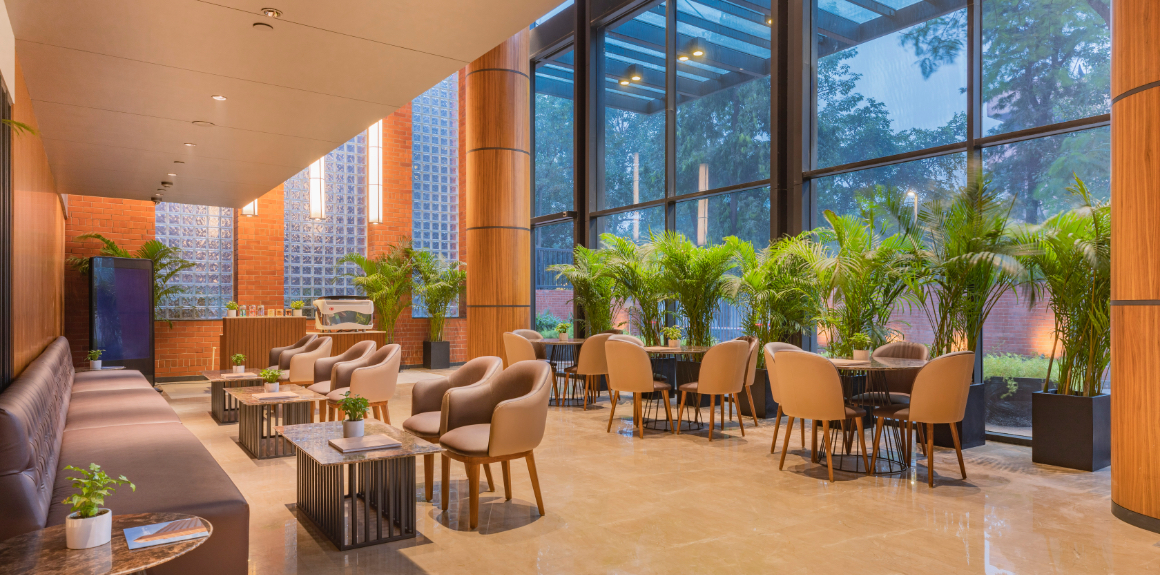For many of us, pets aren’t just animals—they’re family. They offer companionship, unconditional love, and a sense of comfort that makes a house truly feel like home. Beyond emotional support, studies have shown that having pets can reduce stress, improve heart health, and even help children develop better social and emotional skills.
But while the benefits of pet ownership are clear, creating a pet-friendly living environment isn’t always easy, especially in urban settings. Housing societies often struggle to balance the needs of pet owners with concerns from non-pet owners regarding safety, cleanliness, and shared space. The challenge becomes even greater in metropolitan cities, where space is limited, and access to open areas is scarce.
With more people choosing to adopt pets, there is a growing demand for pet-inclusive housing. City dwellers are increasingly looking for homes that accommodate their furry companions—places with open spaces, designated pet zones, and policies that recognize pets as valued members of the community.
Recognizing this shift, real estate developers are reimagining residential spaces to be more inclusive of pets. Many modern housing projects now feature dedicated pet parks, walking trails, and even pet-friendly amenities like grooming stations and play areas.
Let’s take a look at the factors driving this trend.
Urbanisation

India’s cities are witnessing a surge in migration, with people moving for better job opportunities and a higher quality of life. According to the Periodic Labour Force Survey (2020-2021) report ‘Migration in India 2020-2021’ 67% of male and 0.8% of female migrants relocate for employment. Delhi and Maharashtra, as per Census 2011, remain the top destinations for inter-state migration.
While metros offer convenience and amenities, space constraints are a growing challenge. This has led to a shift in urban housing preferences, with more people opting for apartment-style living in tier-1 and tier-2 cities. For pet owners, this shift makes pet-friendly rentals more essential than ever.
Recognizing this growing demand for pet-inclusive housing, real estate developers are designing homes that cater not just to people but to their pets as well. As urban living evolves, pet-inclusive housing is becoming a key factor in shaping modern communities.
Shifting Demographics

According to a recent study by Ken Research, the India Pet Market size was valued at USD 9.85 billion in 2023, reflecting the growing trend of pet ownership. This growth is driven by rising disposable incomes and a shift in consumer attitudes towards pets as part of the family unit. Mars Petcare, a global leader in pet care and nutrition, has unveiled findings from its Global Pet Parent Survey, which gathered responses from over 20,000 pet owners (dog and cat parents) worldwide, including 1,000 participants from India, highlighting the profound impact pets have on our lives. According to the study, the Gen Z and Millennial demographic tends to have a deeply emotional connection to their pets, with 66% of Indian Gen Z dog owners and cat owners considering their pets as “the most important part of their lives.”
Looking ahead, Gen Z and Millennials will be the dominant force in the residential market. Having entered their home renting and buying years, they are shaping up the residential real estate sector by influencing consumer trends. Developers are gradually realising that pet-friendly housing has a sizable market among the urban population. As a result, there has been a significant increase in the number of pet-friendly offerings in real estate.
Government Guidelines and Housing Policies

In recent years, several government bodies have issued guidelines and implemented laws to ensure a harmonious co-existence between pet owners and non-pet owners within housing societies. The Animal Welfare Board of India (AWBI) is a statutory advisory body which promotes animal welfare in the country. The AWBI guidelines emphasise that resident welfare associations (RWAs) and apartment owners associations (AOAs) cannot legally introduce a ban on keeping pet dogs, even if a majority of residents support such a ban.
Additionally, several state governments have implemented their own guidelines. The Noida Authority’s pet policy requires pet owners to register their pets and mandates the sterilisation and anti-rabies vaccination of pet dogs. It also states that housing societies cannot impose restrictions on the size of pets. The policy also holds pet owners accountable for fines and medical expenses if their pets cause injury to someone. These types of housing society rules and regulations, which prioritise pet owners’ rights while addressing the concerns of non-pet owners, have fostered a more pet-friendly environment in residential communities.

The growing demand for pet-inclusive housing highlights a growing acknowledgment of the vital role pets play in our lives. Today, features like dog parks, walking trails, on-site grooming stations, and pet waste disposal areas are becoming standard in residential communities. As this trend continues, it’s likely that future housing developments will seamlessly integrate pet-friendly amenities, ensuring homes cater to both families and their beloved companions.









